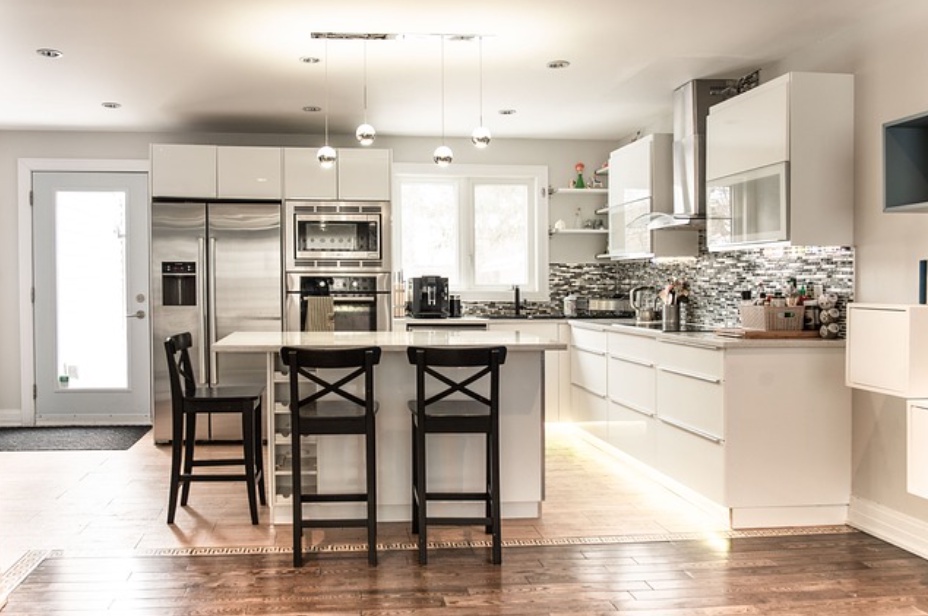Renovating your kitchen can be an exciting venture, adding value to your home and improving your quality of life. However, before you start tearing down walls and picking out new countertops, it's crucial to be aware of the rules and regulations governing kitchen renovations in UK. In this blog, we'll explore the key considerations and legal requirements you need to keep in mind when embarking on getting kitchen renovation services in the United Kingdom.
Planning and Permissions
In the UK, many kitchen renovations can be carried out without the need for planning permission. However, there are several caveats to consider. If your renovation involves a change in the building's structure, such as an extension or a conversion, you will likely need planning permission from your local authority. Additionally, if your property is a listed building or situated in a conservation area, the rules can be more stringent, and you might need special permissions.
Building Regulations
While planning permission pertains to the aesthetics and scale of your renovation, building regulations are concerned with safety and structural aspects. These regulations apply to various aspects of kitchen renovation services, such as electrical installations, gas work, and structural alterations. Compliance is essential, and you may need to involve professionals who are competent in their respective fields. For instance, gas work should be carried out by a Gas Safe registered engineer, and electrical work should be done by a Part P registered electrician. Failing to adhere to building regulations can lead to fines and, more importantly, safety hazards.
Gas Safety
The Gas Safety (Installation and Use) Regulations 1998 dictate that all gas appliances, including cookers, hobs, and boilers, must be installed and maintained by Gas Safe registered engineers. When renovating your kitchen, ensure that any changes to gas installations are performed by licensed professionals. Regular inspections and maintenance are also required to keep your kitchen safe.
Electrical Safety
Electrical safety is a top priority in kitchen renovations. The British Standard for Electrical Installations, known as BS 7671, sets the guidelines for safe electrical work in the UK. All electrical work, including the installation of sockets, switches, and lighting fixtures, must comply with this standard. It's crucial to hire a Part P registered electrician to ensure that the work meets these standards and that the required certificates are issued.
Fire Safety
Kitchens are susceptible to fires, so it's essential to take fire safety into consideration during your renovation. This includes installing smoke alarms and heat detectors in accordance with Building Regulations. Additionally, the choice of materials and appliances should meet fire safety standards. For instance, the installation of a fire-resistant plasterboard around the hob area is often recommended.
Accessibility and Health Considerations
If your kitchen remodeling project aims to make your home more accessible for individuals with disabilities, there are specific regulations to consider. The Equality Act 2010 requires that reasonable adjustments be made to ensure that disabled individuals can use and access their kitchens comfortably. This may include wider doorways, lower counters, and accessible appliances. Compliance with these regulations is crucial to ensure inclusivity and avoid legal issues.
Environmental Regulations
The UK has been actively promoting sustainability and environmental responsibility. When renovating your kitchen, it's worth considering energy-efficient appliances and eco-friendly materials. Many local authorities also offer incentives for green renovations, such as reduced council tax rates for homes with energy-efficient improvements. Be sure to check if you are eligible for any such benefits.
Conclusion
Kitchen renovations in the UK involve various rules and regulations that are in place to ensure safety, accessibility, and compliance with environmental standards. Failing to adhere to these regulations can result in costly fines and potential safety hazards. Therefore, it is advisable to consult with kitchen remodeling professionals, such as architects and contractors, who are well-versed in these regulations and can help guide you through the process. By navigating the rules and regulations carefully, you can create a beautiful, safe, and functional kitchen that enhances your home's value and quality of life.


No comments yet